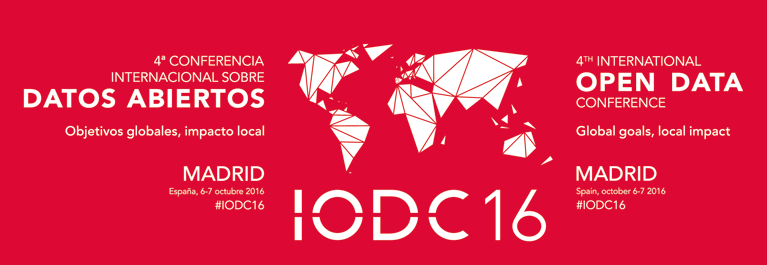Open Data and Language Processing Technologies at IODC 2016

Background
Growth of Internet and ICTs generates such an overwhelming amount of text in electronic format that is already beyond human limits, so that automatic utilization of these textual resources is becoming an urgent matter.
Language Technologies (LT) are a set of diverse technologies that set the path to a deeper automatic understanding of human language. These comprehend Natural Language Processing (NLP) as well as Machine Translation. Both are technologies that allow automatic use of this amount of information that is already beyond human reach.
Consequently Language Technologies generate an emerging, innovative and cross-cutting industrial sector.
Organizations accumulate large amounts of text in electronic format which could be fuel for language technologies industry.
These texts are valuable in two ways:
- Its direct value as raw material to produce relevant information by means of Language Technologies.
- But not less relevant, it is also very useful to create and train Language Technology itself (A good example is the translation memory of European Commission Directorate-General for Translation, which the most downloaded dataset at European Union Open Data Portal).
We could think even further, since combining Open Data with Language Technologies may enable a new knowledge revolution, a new global Enlightenment.
But to achieve its potential benefits, its specific societal, economic, legal and technical challenges must be faced.
Open Data and Language Processing Technologies at IODC 2016
To bring attention to the potential benefits of the conjunction of Open Data and Language Processing Technologies; and to address its specific societal, economic, legal and technical challenges, two events will take place in the context of the International Open Data Conference IODC 2016, that will be held in Madrid (Spain) in October 2016.
The first is a Workshop on October, the 5th (15:30-19:30), where relevant experts in different sides of this polyhedral issue will have time to share and discuss among them and with the audience their different but revealing views and experiences on the matter in a collective effort to shed new and enriched light on it.
The second is an Impact session on October, the 6th (16:45-17:45), where relevant experts will share with us well informed reflections on its challenges and opportunities from different angles, illustrated with use cases where they have been directly involved.
Attendance is free.

